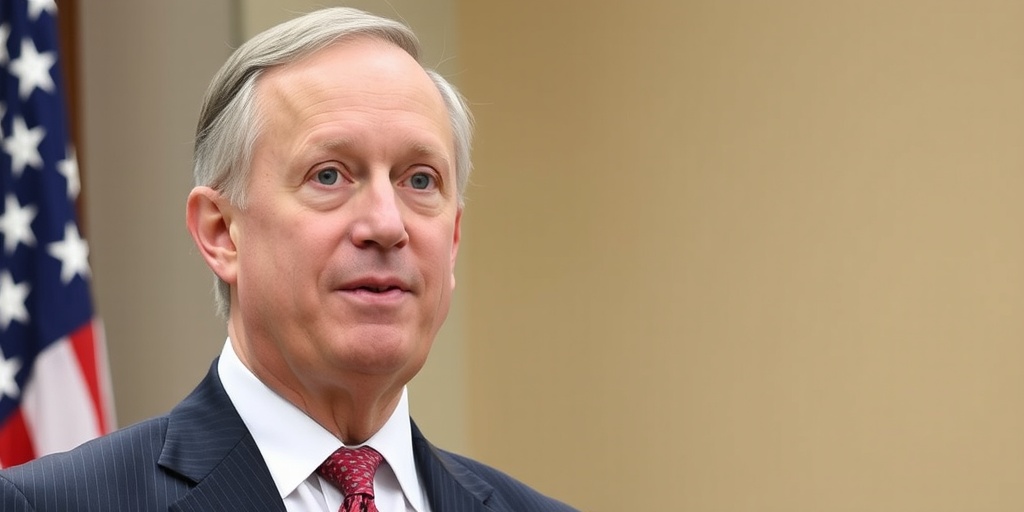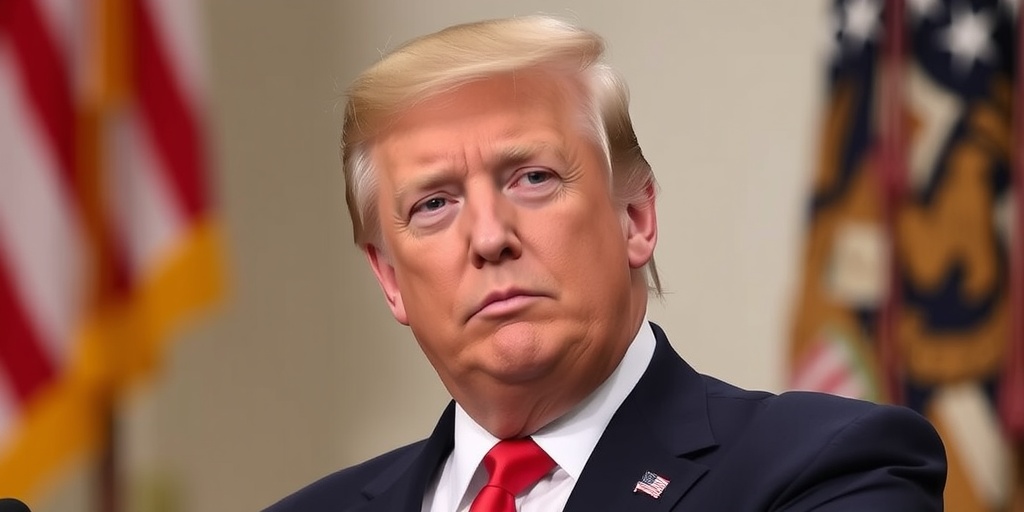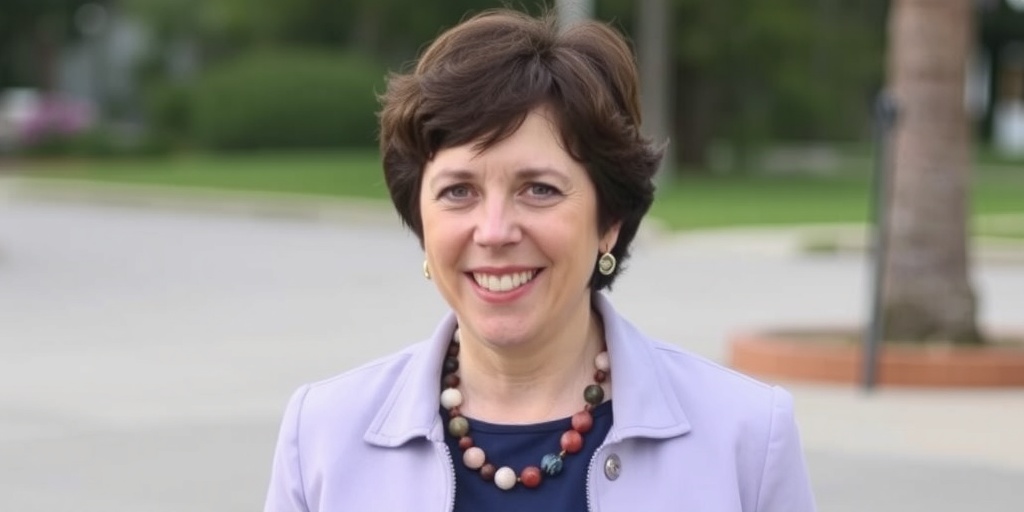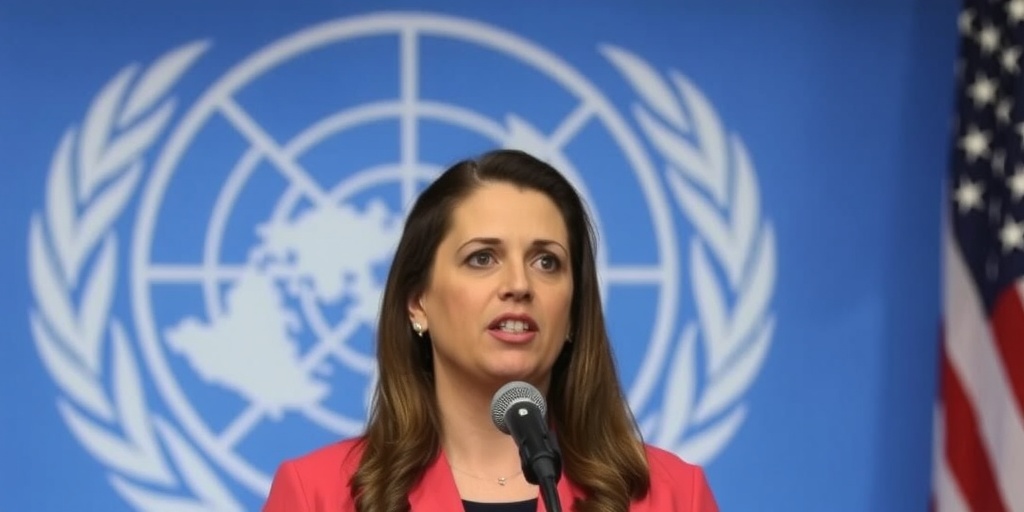Now Reading: Trump Quickly Appoints New Leaders at Key U.S. Attorney Offices
-
01
Trump Quickly Appoints New Leaders at Key U.S. Attorney Offices
Trump Quickly Appoints New Leaders at Key U.S. Attorney Offices
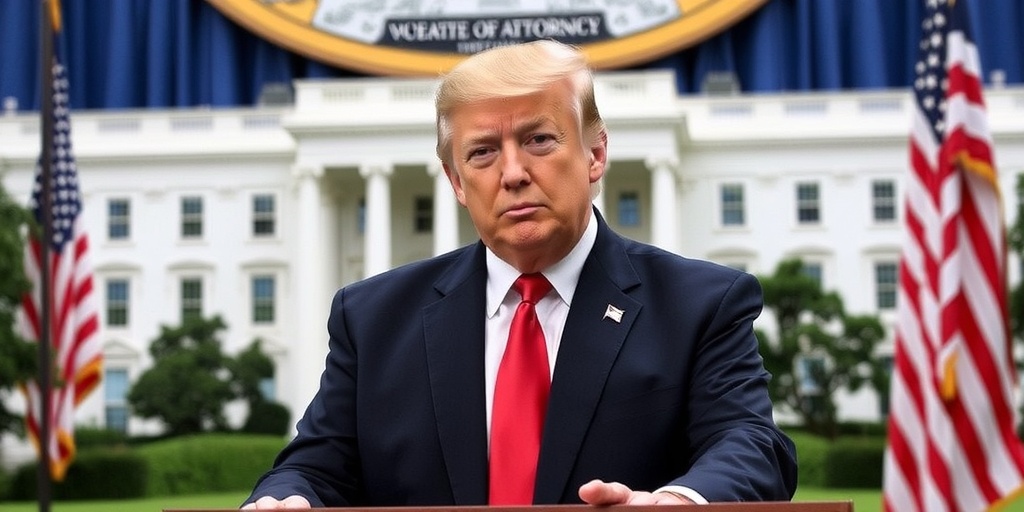
Trump Administration Quickly Installs New Leadership in Key U.S. Attorney Offices
In a significant shift from traditional practices, the new Trump administration has swiftly moved to appoint interim leaders in several critical U.S. attorney’s offices within the first 24 hours of its term. This decisive action underscores the administration’s prioritization of frontline prosecutors, highlighting their central role in executing its overarching agenda.
The offices in focus include two prominent prosecutor’s offices in New York City—Manhattan and Brooklyn—as well as the U.S. attorney’s office in Washington, D.C. The newly appointed acting heads of these offices include seasoned prosecutors as well as a notable Trump loyalist who has been vocal about supporting those charged in connection with the January 6, 2021, insurrection.
Leading the U.S. attorney’s office in Manhattan is Danielle Sassoon, who gained acclaim for her part in the successful prosecution of Sam Bankman-Fried in 2023 for committing fraud in his cryptocurrency enterprise. A dedicated member of the Manhattan office since 2016, Sassoon is currently the co-chief of the office’s criminal appeals unit. Her appointment signals an effort by the Trump administration to retain experienced legal professionals while also establishing firm control over crucial offices.
The Brooklyn U.S. attorney’s office will be led by John Durham, a veteran prosecutor who previously headed the office’s Long Island division. Sharing a name with the former special counsel who examined alleged government misconduct in investigations involving Trump, Durham has spearheaded significant prosecutions, including those targeting MS-13 gang activities and public corruption cases. This continuity of experienced leadership is likely to be beneficial as he navigates the politically sensitive waters of the current administration’s goals.
Meanwhile, Ed Martin, a conservative activist lawyer, has been tapped to oversee the U.S. attorney’s office in Washington, D.C. This office is notable for handling more than 1,500 prosecutions related to the January 6 Capitol riot, a matter of significant controversy and political sensitivity. Following Mr. Trump’s clemency granted in all those cases, Martin’s first official act was to file a motion for the dismissal of all remaining January 6-related cases. His appointment illustrates the administration’s intent to reshape the prosecution landscape around such politically charged issues.
Traditionally, when a new president takes office, the majority of the 93 U.S. attorneys from the previous administration resign, leaving deputy attorneys to assume acting roles. This transition period typically spans months. In contrast, the Trump administration appears keen to implement its selections into key posts immediately, particularly in federal prosecution offices that deal with politically sensitive cases.
Many justice department veterans were taken aback by this rapid change, noting it as a departure from the customary transition practices where deputies are usually elevated to interim positions. The urgency surrounding these appointments suggests a broader strategy to reinforce control by identifying and appointing additional acting leaders across other U.S. attorney offices swiftly.
On the broader administrative front, President Trump signed an executive order calling for a comprehensive review of the Justice Department’s activities over the past four years. His administration aims to address what he perceives as the “weaponization” of the department against him and his supporters. The initial discussions suggest plans to reassign substantial numbers of lawyers to bolster enforcement on immigration cases— a core element of Trump’s policy agenda aimed at accelerating deportations.
While the plans remain somewhat confidential to allow time for the new team to establish itself, several of the earlier appointed officials at the department have been regarded favorably by seasoned prosecutors. Among them are Devin DeBacker, with expertise in national security, heading the department’s national security division, and Antoinette Bacon, a former federal prosecutor who is being considered for the criminal division.
Danielle Sassoon’s impressive credentials also reveal her status as a considerable asset to her new role. Having graduated from Harvard and Yale, she clerked for Justice Antonin Scalia at the Supreme Court and played pivotal roles in high-profile prosecutions, including the case involving Lawrence V. Ray, sentenced for severe crimes at Sarah Lawrence College.
While Sassoon’s leadership is expected to be temporary, as Trump’s nominee for the permanent position, Jay Clayton, awaits Senate confirmation, the ongoing developments emphasize a readiness to adapt the U.S. criminal justice apparatus to fit the administration’s strategic goals. Clayton, a respected attorney at Sullivan & Cromwell and a former SEC chair, will ultimately need to navigate the Senate confirmation process before taking full command.
As the Trump administration establishes its footing, the appointments of Sassoon and Durham, alongside Martin’s controversial position, signal a deliberate attempt to reshape the prosecutorial landscape in the face of political scrutiny and evolving policy directives. This marks a new chapter in the interface between legal careers and political ambitions, one that will likely draw attention and provoke debate in the weeks to come.
Stay Informed With the Latest & Most Important News
Previous Post
Next Post
-
 01New technology breakthrough has everyone talking right now
01New technology breakthrough has everyone talking right now -
 02Unbelievable life hack everyone needs to try today
02Unbelievable life hack everyone needs to try today -
 03Fascinating discovery found buried deep beneath the ocean
03Fascinating discovery found buried deep beneath the ocean -
 04Man invents genius device that solves everyday problems
04Man invents genius device that solves everyday problems -
 05Shocking discovery that changes what we know forever
05Shocking discovery that changes what we know forever -
 06Internet goes wild over celebrity’s unexpected fashion choice
06Internet goes wild over celebrity’s unexpected fashion choice -
 07Rare animal sighting stuns scientists and wildlife lovers
07Rare animal sighting stuns scientists and wildlife lovers













